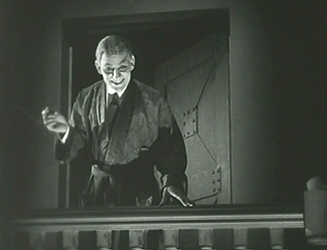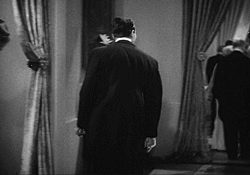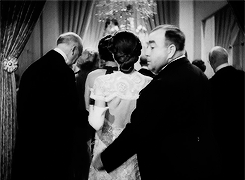Tradutor / Translator / Traductor / Übersetzer / Traduttore / Traducteur / 翻訳者 / переводчик
Saturday, February 27, 2016
Peter Sellers: cem personagens, zero Oscars
Wednesday, February 24, 2016
Bolão do Oscar 2016
Saturday, February 20, 2016
O Monstro / The Monster (1925)
 |
| Nosso "herói" / Our "hero" |
Sunday, February 14, 2016
Dicas de sedução com Barbara Stanwyck
Friday, February 12, 2016
O Brasil e o Oscar – ou a traumática falta dele
Brazil
and the Oscars – or the traumatic lack of one
O Brasil pode ter muitas coisas de que
se orgulhar: linda natureza, animado carnaval, povo simpático, biodiversidade
incrível, cinco títulos de Copas do Mundo. Mesmo assim, o povo ainda amarga uma
questão: não temos nenhum Oscar.
Há todo um clima de união quando um
filme brasileiro é indicado à estatueta. De repente, toda a nação se junta em
torno desse filme, que passa a ser “o Brasil no Oscar”: nossa grande esperança
de mostrar que também temos cultura. Em nenhum outro país uma indicação ao
Oscar é capaz de unir um povo, ou os americanos seriam o povo mais unido e
contente do mundo.
There
is a whole union feeling when a Brazilian film is nominated for the award.
Suddenly, the whole nation unites over this film, then considered “Brazil at
the Oscars”: out huge hope about showing that we also have a worthwhile
culture. In no other country in the world na Oscar nomination is able to unite
the people, or else the Americans would be the most united and happiest people
in the world.
Em 1960, logo após surgir o prêmio de
Melhor Filme em Língua Estrangeira (que até então era uma categoria honorária,
sem concorrentes anunciados com antecedência), o Brasil chegou a ganhar o
Oscar, mas não levou. Vamos explicar: o roteiro, o elenco, a música, quase tudo
era brasileiro em “Orfeu Negro”, que adapta a lenda de Orfeu para a época do
Carnaval. Mas o produtor e o diretor do longa-metragem eram franceses, e assim
uma produção 100% tropical rendeu mais um Oscar... à França.
In
1960, right after the award for Best Film in a Supporting Language was created
(it was until then an honorary category, without nominees announced), Brazil
won an Oscar, but didn’t take it home. Let’s explain: the script, cast, songs,
almost everything was Brazilian in “Black Orpheus”, an adptation of the Orpheus
legend to the Brazilian Carnaval. But the producer and the director were
French, and because of this na otherwise 100% tropical production won another
Oscar... for France.
Four
Brazilian movies were nominated for the Best Foreign Language Film at the
Oscars: “The Given Word” (1962), “O Quatrilho” (1994), “Four Days in September”
(1997) and “Central Station” (1998). We had hopes to be nominated again with
the touching “The Second Mother” (2015), but the film was shut out even from
the shortlist and, we must see it, had no chance against “Son of Saul”,
Hungarian production about the Holocaust.
| O que é isso, companheiro? / Four days in September |
“O Pagador de Promessas”, se feito na
Itália, poderia ser considerado uma obra-prima do Neorrealismo. Explorando um
tema universal, tem todos os ingredientes de um filme estrangeiro inesquecível,
capaz de comover pessoas de qualquer nacionalidade. O vencedor daquele ano foi,
entretanto, “Sundays and Cybele / Les dimanches de Ville D’Avray”, um filme
pouco conhecido.
“The
Given Word”, if made in Italy, would be considered a masterpiece of Neorealism.
With an universal theme, it has all the ingredients of an unforgettable foreign
film, that can move people from all nationalities. The winner that year was
“Sundays and Cybele / Les dimanches de Ville D’Avray”, a lesser-known film.
A criatividade do cinema brasileiro
foi cortada brutalmente em 1964, quando ocorreu o golpe militar. Nos 21 anos
seguintes, o governo censurou muitos filmes. Os filmes independentes tratavam
de temas mais imediatos e políticos de forma sutil, sem grande apelo
internacional.
The
very creative Brazilian cinema suffered a hard blow in 1964, when a military
coup d’etat happened. In the 21 years that followed, the government censored
many movies. Independent films were made about more immediate and political
issues in a subtle way, without much international appeal.
A retomada do cinema brasileiro
começa oficialmente em 1995. Em 1999, uma surpresa agradável: além de “Central
do Brasil” ter sido indicado como Filme em Língua Estrangeira, a maior atriz do
país, Fernanda Montenegro, foi indicada ao prêmio de Melhor Atriz. Cate
Blanchett era a favorita, mas em uma noite esquisita, foi Gwyneth Paltrow que
ganhou a estatueta, gerando um ódio que muitos cinéfilos brasileiros alimentam
contra ela até hoje. Quanto ao Melhor Filme em Língua Estrangeira, o prêmio
ficou com “A Vida é Bela”, e arrisco dizer que, se este comovente filme de
Roberto Benigni não estivesse na competição naquele ano, teríamos um Oscar para
chamar de nosso.
Brazilian
cinema is officialy reborn in 1995. In 1999, a pleasant surprise: besides being
nominated as Best Foreign Language Film, “Central Station” also led Fernanda
Montenegro, considered the finest actress of the country, to be nominated as
Best Actress. Cate Blanchett was the favorite, but in a weird night, Gwyneth
Paltrow won the award, generating a hatred that many Brazilian cinephiles still
have against her. For the Best Foreign Language Film, the award went to “Life
in Beautiful”, and I dare to say that, if this moving film by Roberto Benigni
wasn’t competing that year, we’d have an Oscar to call ours.
Em 2002, “Cidade de Deus” não foi
indicado na categoria Filme em Língua Estrangeira, mas conseguiu indicações
para Edição, Roteiro Adaptado, Fotografia e Diretor, iniciando uma carreira
internacional para o diretor Fernando Meirelles. Lembre-se também de que outro
brasileiro de sucesso no exterior é Carlos Saldanha, que trabalhou no
curta-metragem ganhador do Oscar “Bunny” em 1998, criou o esquilo Scrat da
franquia “A Era do Gelo” e dirigiu outro curta-metragem indicado à estatueta,
“Gone Nutty” (2002).
In
2002, “City of God” wasn’t nominated among the foreign films, but was in
categories such as Editing, Adapted Screenplay, Cinematography and Director,
igniting diretor Fernando Meirelles’s international career. Another Brazilian
who is successful abroad is Carlos Saldanha, who worked in the Oscar-winning
short “Bunny” in 1998, created Scrat the squirrel from the “Ice Age” franchise
and directed another short nominated for an Oscar, “Gone Nutty” (2002).
Excluindo os indicados na categoria
mais óbvia, o Brasil também já esteve na disputa nas categorias Documentário
(com “Lixo Extraordinário”, 2010, e “O sal da Terra”, 2014), Canção Original
(quando a animadíssima “Real in Rio” perdeu para “Man or Muppet”, uma música
bem ao gosto americano) e Curta-Metragem Live-Action (com “Uma História de
Futebol” em 2000). Em 2016, “O Menino e o Mundo” foi indicado na categoria
Animação e fez uma grande e bem-sucedida campanha de crowdfunding, mas é provável que o ganhador seja o favorito
“Divertida Mente”, elogiado filme da Pixar.
Excluding
the nominees in the most obvious category, Brazil was also nominated in the
categories Documentary (with “Waste Land”, 2010, and “The Salt of the Earth”,
2014), Original Song (when the groovy “Real in Rio” lost for the
shaped-for-American-taste “Man or Muppet) and “Live-Action Short (with “Uma
História do Futebol” in 2000). In 2016, “Boy and the World” was nominated in
the Animation category and made a successful crowdfunding campaign, but the
winner will probably be the favorite “Inside Out”, the acclaimed Pixar movie.
Nós ainda não ganhamos o Oscar. Mas
filmes importantes, provocativos e surpreendentemente sensíveis estão sendo
produzidos e exportados pelo Brasil, como “Hoje eu quero voltar sozinho / The
way he looks” (2014) e “Que horas ela volta? / The Second Mother” (2015). A
ditadura tentou destruir a criatividade do cinema brasileiro, mas nossos
cineastas se reergueram e estamos evoluindo. Um dia ainda realizaremos o sonho
da estatueta dourada – e eu quero estar lá para ver isso acontecer.
We
haven’t got an Oscar yet. But importante, provocative and surprisingly
sensitive films are being made and exported by Brazil, like “The way he looks”
(2014) and “The Second Mother” (2015). The dictatorship tried to destroy the
creativity in Brazilian film, but our filmmakers persevered and we’re evolving.
One day we’ll fullfil the dream to have the Golden statue – and I will want to
be there to witness it.
 |
| Um dia o meme vai acabar! |



























